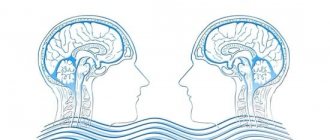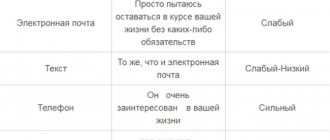What comes to your mind when you hear “white crow”?
And those who say that it depends on what we are studying or discussing at the moment will be right.
Judge for yourself, the black crow is:
- The pied crow or piebald crow (Latin name Corvus albus - white crow), which is often called the most common crow in Africa. It is an adaptable bird that can be seen from sub-Saharan Africa to the Cape of Good Hope, Madagascar, Comoros, Zanzibar, Aldabra, Pemba and Fernando Po. The crow lives mainly in open areas where there are villages and towns nearby.
Crows form small groups or pairs and are social birds.
The pied crow gets its name from its distinct white patch from its back to its belly.
- Rare albino crow.
This is a rare genetic mutation that results in a complete lack of coloration, making this bird extremely unusual.
Albino ravens, with distinct white feathers and pink feet, beaks and eyes, are uncommon because they require parents with the same recessive gene to create them.
Albinism is a genetic mutation that prevents the body from producing melanin, resulting in a complete lack of color.
- And finally, this is a person who is very different from the rest in appearance, way of thinking, situational reaction or behavior, and a set of internal rules and codes.
The meaning of phraseology
To understand the meaning of the phraseological unit “white crow”, you need to start by remembering: what is a phraseological unit? What are these lexical forms? What are their meanings and in what cases are they used?
A phraseological unit or phraseological phrase refers to a semantic indivisible phrase, which is characterized by the constancy of a holistic and specific meaning.
Often, when discussing (most often when judging) a person or his actions, we sometimes use very intricate phrases: “Buridan’s donkey”, “onion grief”, “two-faced Janus” or “white crow”.
Simply put, a black sheep person is someone who, with his behavior, views, judgments, values and, as a rule, appearance, differs from his environment.
Create your family
Blood ties do not always serve as a guarantee of love and friendship. Many people admit that they do not get along with their parents, brothers and sisters, and do not strive to communicate with them. However, nothing prevents them from creating their own family, consisting of people who understand them.
A family for a “white crow” can be a husband or wife, children. This role can also be assigned to friends with whom a person has similar interests and views on life.
Origin of phraseology
The expression “white crow” was first used as a metaphor by the ancient Roman poet Juvenal (1st-2nd centuries AD) in his seventh satire:
By the way, the expression “white crow” has become an exclusively Russian expression, denoting people who are extraordinary in every sense of the word.
“White Crow” is an idiom and each nation has its own:
Therapy for adults
Work with a psychologist is carried out systematically at the same time, in the same place.
The client should feel comfortable. The road to recovery will be long. A doctor must be a reliable person who believes in his client. A large supply of mental resources is required from him. Its goal is the rejection of traumatic events. Victims are rarely helped by conversations that life will change if they love themselves and begin to take responsibility. If the psychotherapist takes the wrong approach, the patient’s condition may worsen, because he will decide that the problem is him, and nothing will help him. Alienation trauma is treated comprehensively. The rejected person must realize his worth, see the cause of the trauma, understand how it affects him now. There are different psychotherapeutic approaches in which the victim learns to notice his feelings, build and defend boundaries. Whatever path the psychologist chooses, it is important that his relationship with the client does not begin to resemble a parent-child interaction. A true professional is confident in success, he is ready for complex and lengthy work and will definitely help everyone in need. The rejected person needs to carefully choose a specialist with whom he will feel comfortable. Share:
Examples from the works of writers:
Survey
Bad boss
The National Union of Personnel Officers surveyed 916 employees of Russian and Western companies about what exactly makes a bad boss. For 40% of respondents, the worst quality of leadership is inconsistency. Two more of the worst shortcomings that can ruin a working relationship forever are the boss’s inability to listen to subordinates and lack of professionalism. The manager’s inability to listen to his team irritates 28% of respondents, and his lack of professionalism – 24%. Further, among the shortcomings, the inability to admit one’s mistakes, indifference and despotism were noted. Five respondents named excessive kindness as a quality inherent in a bad boss.
How do people become "White Crows"?
In fact. “White Crows” people are nonconformist people.
Nonconformists are known to us from history textbooks (England, early 6th century). In those days they were true Protestants, not subject to the disciplines and rites of the Church of England.
A nonconformist is someone who does not conform to other people's ideas of how things should be. A person who refuses to conform to established customs, attitudes, or ideas. A person who habitually acts differently from most people, not to be different or special, but because he chooses to do so.
Activists, artists, fashion designers, politicians, etc. - anyone who “walks to the beat of a different drummer” is a nonconformist.
Depending on the circumstances, they are misunderstood, admired, opposed, hated, and perhaps despised as rebels.
Synonyms are: dissenter, apostate, dissident, schismatic, individualist, loner, etc.
And if there has never been a “black sheep” in your environment, you were probably familiar with one example back in childhood. Do you remember? G.H. Andersen "The Ugly Duckling".
And the children of the former USSR remember very well the film by Rolan Bykov “Scarecrow” or the Oscar-winning masterpiece based on the novel of the same name “Forest Gump”. This list of examples can be continued indefinitely.
Consequences of rejection trauma in adults
Due to the trauma of rejection, a person develops certain behavioral “patterns” for each case. For example, he will avoid conflict in every possible way, make concessions, and if a quarrel does occur, he will behave with extreme restraint, since it is important for him that others have a good opinion of him. He wants everyone to love and accept him. At the same time, he can divert attention from this in every possible way, demonstrating, if possible, that he does not care about other people’s opinions. You could say that the outcasts constantly wear a “mask.” They suffer from internal pain, but do not allow anyone to come close and bring comfort. Most often, they deliberately repel others with coldness, indifference, or even slight rudeness. The following example can be given. A preschool girl experiences uselessness and loneliness. She is trying to attract attention to herself, wants to feel important. However, the mother believes that her daughter is capricious. The girl continues to behave differently from other children, but now becomes aloof and secretive. Mom is unhappy again and completely stops spending time with her. No attempts by the child to correct the situation lead to anything. The trauma of alienation is reinforced. The girl looks for reasons in herself, complexes form, she believes that no one will love her. She becomes a woman, but her behavior remains virtually unchanged. She comes to the team and tries to please everyone. She will avoid those who may reject her or have already rejected her. For any little thing, for example, an unsatisfactory conversation, she will blame herself, but move away from her interlocutor. She considers herself unattractive to men and does nothing; she has come to terms with this thought. Often the outcast ignores his own desires and lives with one goal - to please everyone. He completely suppresses his individuality, thinking that his real emotions will repel others. The victims also notice: • Internal masochism . It's about selflessness. The victim instills in himself a feeling of worthlessness. • Confluence . This word means incorrectly set boundaries. The outcast loses himself and “merges” with another person. • Lack of independence . Loneliness is not safe for him. Moreover, in relationships he takes a passive dependent position. • Internal conflicts. Desperate attempts to create normal conditions for survival are sometimes replaced by short periods of peace of mind. • Resentment towards parents. The victim is insignificant, his parent is great. Because of this, the outcast begins to be angry with his parents, but suppresses this feeling. • Denial of successes . The victim is so accustomed to feeling worthless that he refuses to somehow elevate himself even through real merit. • Shame . The outcast believes that he is inferior, defective, and he is ashamed of it.
The adult life of a previously rejected child is continuous attempts to disappear, become invisible, powerlessness. Of course, there is no talk of any happiness or success. The life of a rejected person comes down to banal survival. Over the years, he belittles himself more and more, considers himself unworthy of love and care, the worst person of all. Such a person really begins to be rejected by those around him. Because of this, he is convinced that he is right.
How to behave as a “white crow”?
Who said that “black sheep” is a death sentence?
There are many variations of the catchphrase:
This is one of the few phrases that are truly true. Over the past half century, we have seen a clear trend towards individuality in everything. If you want, “black sheep” is a trend now. Many people today emphasize their individuality wherever and whenever possible. For a long time now, no one at all wants to be “dressed in uniform” both in appearance and in thinking.
You can be a “black sheep” (nonconformist) without suffering from any shortcomings.
What's wrong if you decide not to drink alcohol today in a drinking company? What is more important than the opinion, condemnation and misunderstanding of these people or your health?
Today's "White Crow" is a trend. This is much more than just a demonstration of "oppositional attitude", more than the combination of a primitive bushy beard with a haircut in the style of the 30s.
This is a holistic philosophy of life that manifests itself in a person, creating a balance between tradition and modernity.
"White Crows" react with distrust to what everyone seems to believe and ridicule the principles of action that are generally agreed to form the basis of social order. They do not accept tacit assumptions about serious judgments and sometimes simply refuse social support.
This is someone who, through his appearance and behavior, ensures that he stands out positively in all situations. He's cool without being forced, carefree without being carefree, an old-school gentleman without being chauvinistic.
You should not fight with “windmills” and “throw pearls before swine.” Just go your own way. Go where you like, how you like and in what you like.
And if your environment does not understand you, just change this environment and be yourself.
Natalia Shakhova
Set boundaries
Communication with some family members can be a real test for the “black sheep”. Under no circumstances should you allow people to offend you, even if we are talking about family and friends. If communication has become toxic, sometimes it is better to completely abandon it or seriously limit it. A person's mental health is much more important than maintaining relationships with family.
If relatives and friends try to impose their position in life on the “black sheep,” this must be stopped. No one can choose a person’s career, lifestyle, interests and hobbies.
Why bake a cake on March 14th? How mathematicians celebrate the birthday of Pi
The beloved woman of Alexander Gorbatov, who became his muse: photo
“I’m sorry” and “I’m sorry”: what’s the difference and why we always ask God to forgive us
Incredible
Right to beer
Workers at some manufacturing plants in Denmark are on the verge of going on strike. No, they are not demanding that their salaries be increased. Their dissatisfaction is caused by the attempts of their superiors to wean them from drinking alcohol during working hours. Three years ago, 75% of industrial canteens in the country sold beer during the lunch break. Now only 13% of such canteens remain. Employers were forced to take such steps in an attempt to increase labor productivity, as well as out of concern for the health of workers. But their good intentions encountered serious resistance from the workforce at some enterprises.











